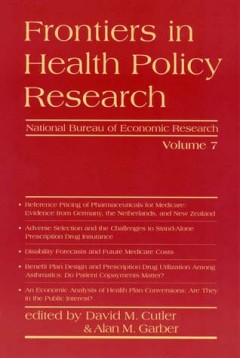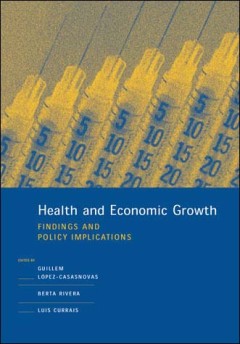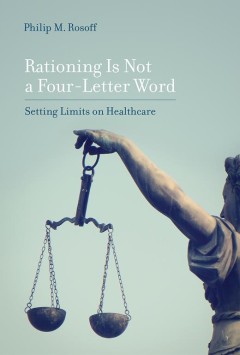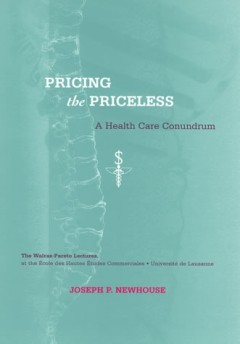Filter by

Frontiers in Health Policy Research, Volume 7
"National Bureau of Economic Research."These papers were presented at the seventh annual Frontiers in Health Policy Research meeting held in Washington, D.C., in the summer of 2003.This series from the NBER presents new research by leading economists on current health care policy issues. The papers in this seventh volume, originally presented at the annual Frontiers in Health Policy Research co…
- Edition
- -
- ISBN/ISSN
- 9780262271059
- Collation
- 1 online resource (1 volume) :illustrations
- Series Title
- -
- Call Number
- -

Health and economic growth : findings and policy implications
While human capital is a clear determinant of economic growth, only recently has health's role in this process become a focus of serious academic inquiry. By marrying the separate fields of health economics and growth theory, this groundbreaking book explores the explicit mechanisms by which a population's individual and collective health status affects a nation's economic development and perfo…
- Edition
- -
- ISBN/ISSN
- 9780262290586
- Collation
- 1 online resource (x, 385 pages) : illustrations
- Series Title
- -
- Call Number
- 330 HEA

Rationing is not a four-letter word : setting limits on healthcare
"Most people would agree that the healthcare system in the United States is a mess. Healthcare accounts for a larger percentage of gross domestic product in the United States than in any other industrialized nation, but health outcomes do not reflect this enormous investment. In this book, Philip Rosoff offers a provocative proposal for providing quality healthcare to all Americans and controll…
- Edition
- -
- ISBN/ISSN
- 0262320762
- Collation
- 1 online resource (xiv, 320 pages).
- Series Title
- -
- Call Number
- -

Pricing the priceless :a health care conundrum
The health care industry differs from most other industries in that medical pricing is primarily administered by the government and private insurers and in that it uses several types of contracts. Providers may receive a fixed sum for all necessary services within a given period of time, for the necessary services to treat a given condition, or for each specific service. The industry is changin…
- Edition
- -
- ISBN/ISSN
- 9780262280600
- Collation
- 1 online resource (viii, 258 pages) :illustrations.
- Series Title
- -
- Call Number
- -

The market in mind :how financialization is shaping neuroscience, translation…
A critical examination of translational medicine, when private risk is transferred to the public sector and university research teams become tech startups for global investors. A global shift has secretly transformed science and medicine. Starting in 2003, biomedical research in the West has been reshaped by the emergence of translational science and medicine--the idea that the aim of research …
- Edition
- -
- ISBN/ISSN
- 9780262352963
- Collation
- 1 online resource (312 pages).
- Series Title
- -
- Call Number
- -
 Computer Science, Information & General Works
Computer Science, Information & General Works  Philosophy & Psychology
Philosophy & Psychology  Religion
Religion  Social Sciences
Social Sciences  Language
Language  Pure Science
Pure Science  Applied Sciences
Applied Sciences  Art & Recreation
Art & Recreation  Literature
Literature  History & Geography
History & Geography